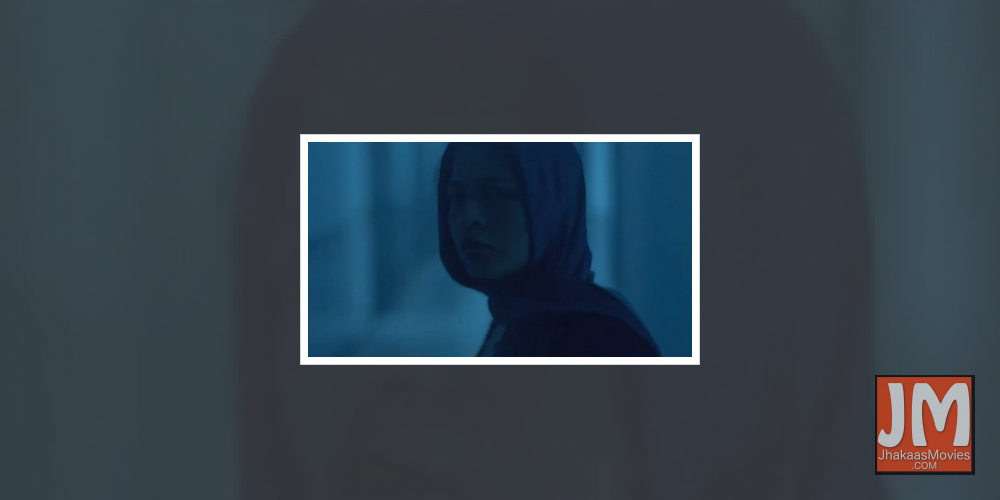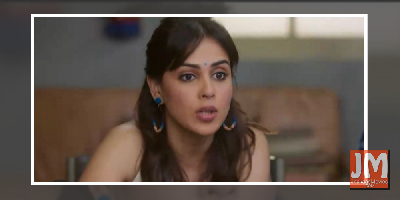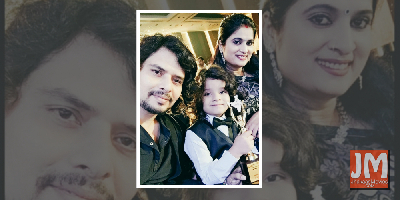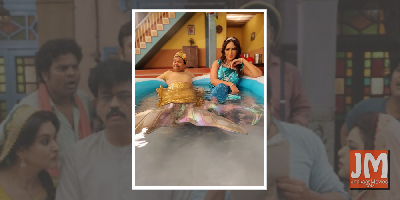 Aan Tiwari honoured with Best Child Actor award for Baal Shiv
Aan Tiwari honoured with Best Child Actor award for Baal Shiv Ghategi rahasymayi ghatnaye!
Ghategi rahasymayi ghatnaye! Amazon Prime Video unveils the 2021 Festive Line-up; brings a heady mix of Indian and International titles on the service
Amazon Prime Video unveils the 2021 Festive Line-up; brings a heady mix of Indian and International titles on the service Release: Music video of, Yeh Haalaath, from Mumbai Diaries 26-11
Release: Music video of, Yeh Haalaath, from Mumbai Diaries 26-11 Bhumi Pednekar feels she shares feel-good value with Akshay Kumar on screen
Bhumi Pednekar feels she shares feel-good value with Akshay Kumar on screen
Saad the new 'Ghatak' of Bengali cinema

Abdullah Mohammed Saad is billed as the new enfant terrible of Bengali cinema, whose films can leave viewers unsettled emotionally and madly appreciative in adulation.
He resembles the great Ritwick Ghatak whose Partition themed films would make Bengalis across generations cry and weep, even react violently and leave all with deeply unsettling questions.
Saad's "Rehana Maryam Noor", a 107-minutes exploration of moral dilemma and a woman's emotional turmoil received huge ovation at 74th Cannes Film Festival on July 7.
Legendary French actress Catherine Deneuve described the film as "fantastic".
A French lady on the streets recognised lead actress Ajmeri Haque Badhon despite her Covid-19 face mask and asked her if she was 'Rehana'.
Badhon, 34, said she wept at the recognition that the French only bestow on quality cinema.
"Rehana Maryam Noor" is marked by Saad's directorial style that one commentator says, "grips like steel".
Lead actress Azmeri Haque Badhon impresses but unsettles viewers as a lady whose pursuit of justice threatens to destroy her and those around her.
Writer-director Saad, who achieved festival traction with his 2016 debut "Live From Dhaka", works out an unique visual narrative that pulls all into Rehana's world and leaves us ever curious to understand her psyche and the turn of events.
Bangladesh has been rocked by recent cases of highly publicised sexual assaults by men in power on women who can barely resist.
The mysterious death of a business tycoon's girlfriend and the assault on a leading actress Pori Moni in the Savar Boat Club have brought to the fore a barely concealed Bangladesh reality -- despite tall claims of gender empowerment, women remain very vulnerable in the country, a strong long-ruling woman Prime Minister notwithstanding.
And it is not just sexual assault and exploitation that women in Bangladesh face.
Even a strong, dignified and gracious lady minister like Tarana Halim is suddenly thrown out of political reckoning for taking on a hugely corrupt business tycoon with close links to the corridors of power.
Halim, an award winning actress in her youth and later a top lawyer, has been in Awami League since she was a student, highly committed to the values of the Liberation War and the cause of a secular Bangladesh.
But the fundamentalist tycoon who threatened to finish her career had the last laugh when she was denied a party ticket in the 2019 parliament polls. Another story waiting to be turned into film, perhaps!
Tarana Halim's predicament and Badhon as 'Rehana' seem to connect flawlessly across the social canvas of a nation, literally bloodied and raped at birth by a brutal Pakistan Army.
Bangladesh's MeToo pioneer Monira Sultana Popy, who is fighting her bank bosses for sexual misconduct, says most Bangladesh women would naturally connect to Badhon as Rehana.
"Most of us have suffered such predicament. The film is a slap on the nation's conscience," Monira told IANS.
The question raised by director Saad is deeper -- how an economic turnaround alone can turn Bangladesh into 'Sonar Bangla' (Golden Bengal) if its women are so insecure and vulnerable.
Saad's Rehana Maryam Noor works as an assistant professor at a medical college.
A woman of firm moral convictions, she is seen early on invigilating an exam and expelling one young woman for 'cheating'.
Rehana's male boss Dr. Arefin (Kazi Sami Hassan) pleads leniency, but another female student, Annie (Afia Tabassum Borno), confides to Rehana that Arefin has sexually harassed her. Annie doesn't want her complaint made public, so Rehana decides to blow the whistle on Arefin, presenting herself as the one targeted.
This brings Rehana into conflict with the college's female principal, who – though initially sympathetic – makes it clear that her prime concern is the institution's reputation.
Meanwhile, widowed mother Rehana deals with onerous domestic pressures – not least from a feckless brother – and balances work with the care of her young daughter Emu (Afia Jahin Jaima), whose difficulties at school tellingly mirror her mother's.
Audaciously, Saad sets the entire drama in one overall location – the offices, corridors and other areas of the college. Visually, this makes a feeling of both claustrophobia and disorientation.
The sense of oppression is exacerbated by Tuhin Tamijul's use of blue filters and a colour scheme that generally limits costumes to deep shades of blue and red (with one instance of yellow that explodes early on like a panic alarm).
The camerawork, focussed tight on the characters, and Saad's own editing adds further urgency.
Generally short scenes often end very abruptly, the narrative moves jerkily ahead, with advances in time often indicated primarily by changes of costume.
The film derives a magnetic continuity, and an unsettling range of dynamics, from Badhon's performance.
"Rehana is sometimes sullenly incommunicative, sometimes coolly, determinedly in control before brief, shocking eruptions – building a character who can seem, by turns, opaque, admirable and yet disturbing in the intensity, even violence of her moral rigour," says a commentary on the film.
While the film raises questions of truth and the difficulty of establishing it – especially within the entrenched system of an institution - Rehana herself comes under the moral microscope in terms of her conflicted relations with her students and with Emu.
The chain of scenes in which this loving and committed mother engages with her lively, intelligent child (a sparky, winning and eventually troubling performance by young Afia Jahin Jaima) culminates in a closing moment that shows how the cycle of rage perpetuates itself, even when fuelled by noble social convictions.
'Rehana' is the dark side of the moon that Bangladesh now is -- bright and young , economically growing faster than most but with deep blots on her soul and her conscience left behind by corruption, nepotism and mistreatment of women.
Tags: Cinema, Showbiz, Religion, South Asia









